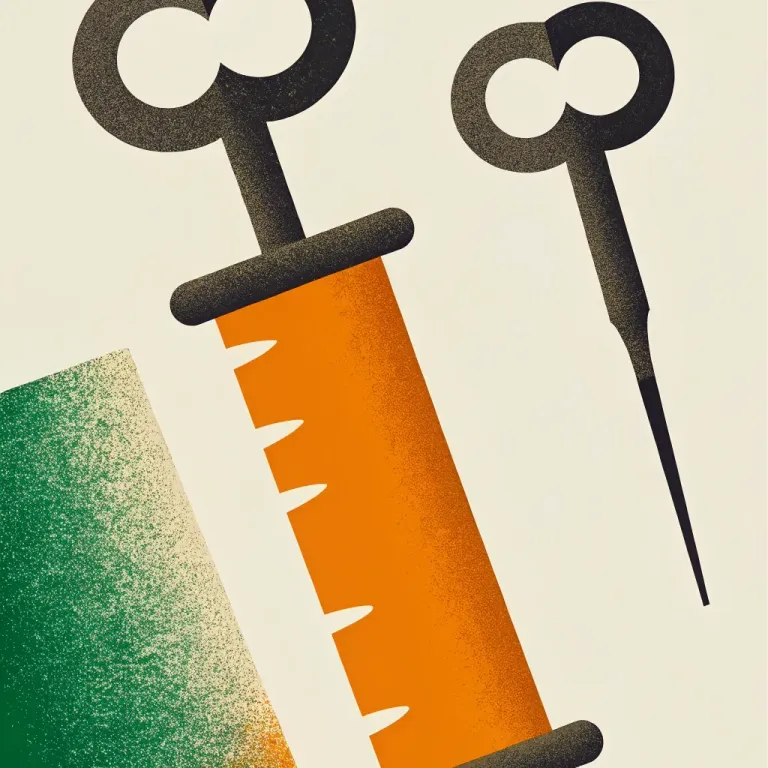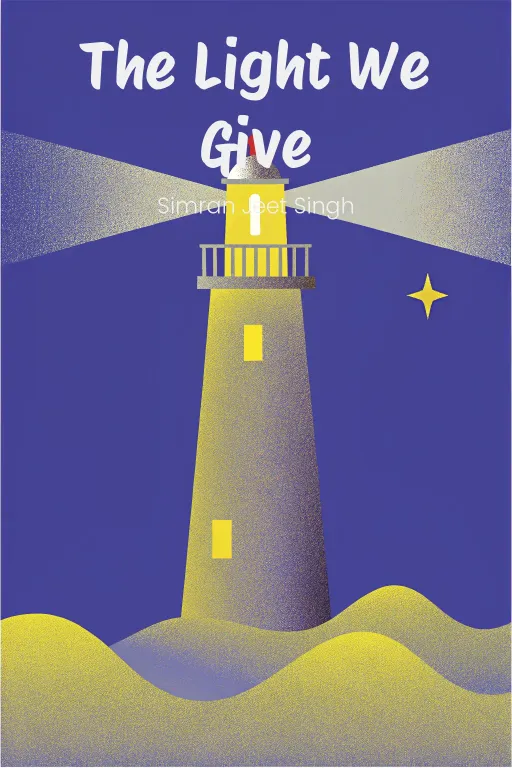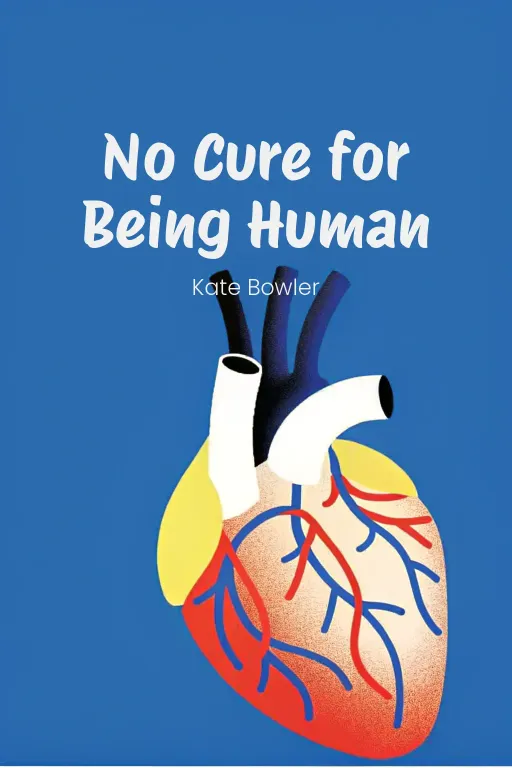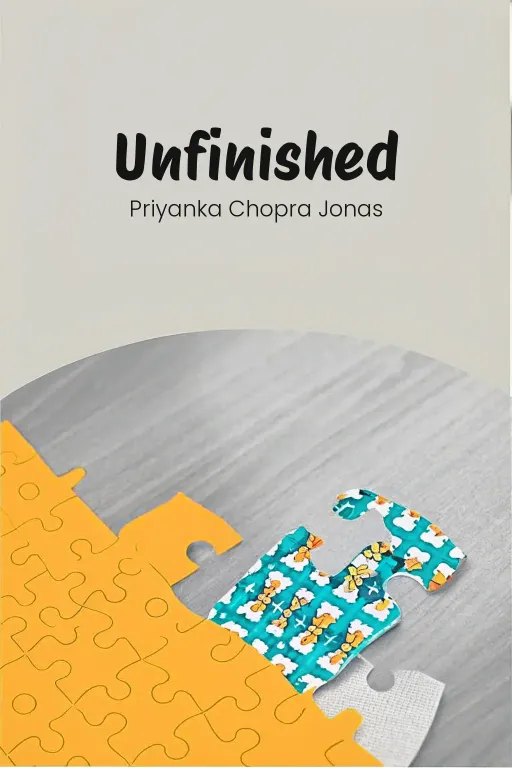
Life's Mess: Finding Joy in the Scraps
Podcast by Beta You with Alex and Michelle
(and Other Truths I Need to Hear)
Introduction
Part 1
Alex: Hey everyone, welcome! Today, we're diving into Kate Bowler’s memoir, “No Cure for Being Human”. It's a book that's incredibly raw, deeply insightful, and surprisingly funny, all at the same time. It doesn’t just tell her story of living with stage four cancer; it really challenges how we think about, well, everything. Michelle: Right, because if there's one thing we’re constantly told, it's that life should be this perfectly managed project, right? Bowler basically grabs that narrative, throws it up in the air, and asks, “Wait a minute, what if we actually have no control?” Alex: Exactly! Through her diagnosis, treatments, and real reflections on being a mom and feeling love, Bowler confronts what happens when that illusion of control we all cling to just…shatters. She calls out those clichés we love to throw around, like “live your best life” or “everything happens for a reason,” and replaces them. She offers us something more authentic, like embracing vulnerability and imperfection. Michelle: Seriously. And she does it with such a refreshing lack of sentimentality. I mean, who else can write about something as heavy as mortality and still crack you up? It's genius. Alex: Absolutely. And in today’s episode, we're going to unpack three key takeaways from her journey. First, we'll deconstruct this societal myth of control, the way we’re conditioned to "fix" our lives as if they’re some DIY project, and why Bowler so directly challenges that. Michelle: Then, we’ll really get into vulnerability – how facing her own mortality teaches her what it truly means to connect with other people. Spoiler alert: it’s messy, but it's also incredibly beautiful. Alex: And finally, we'll talk about her idea of an unfinished life. Bowler reminds us that maybe we're not meant to neatly tie up every loose end, and that's perfectly okay. Maybe the meaning of life lies precisely in embracing that unfinished quality. Michelle: So, yeah, buckle up, folks. This isn't your typical feel-good, "hallmark inspiration" story. This is real life, with all its imperfections and complexities. And it’s absolutely brilliant.
The Illusion of Control and Societal Narratives
Part 2
Alex: Okay, let's dive right in, shall we? The societal myth of control – it's everywhere! You see it in the mountains of self-help books, those oh-so-motivational Instagram quotes, and those TED Talks that promise you can construct a perfect life if you just work hard enough, think positively enough, and plan meticulously. Doesn’t it feel like a bit much sometimes? Michelle: Totally, it's that whole 'manifest your destiny' thing. As if happiness and success are just some DIY project waiting to be completed. Am I right? Alex: Exactly! And Bowler, she just smashes that idea to pieces. She sees it as this exhausting, hollow story that just doesn’t stand up when life throws a curveball at you. One of the most striking moments in her memoir is when she’s in a hospital bed, facing this cold, hard reality of a 14% survival rate. I mean… No amount of positive thinking or meticulous planning is going to change those odds. Michelle: That scene is so raw, isn’t it? It's like, bam, reality check! The comfy blanket of 'keep hustling, keep improving, and you'll be fine’ is just yanked away. The doctor doesn’t sugarcoat anything—he just throws out those numbers. And Bowler suddenly realizes, 'Wait, I'm not in control here.’ Alex: Exactly, and that's what makes her critique of phrases like "living your best life" so sharp. She points out how those mantras shift the blame onto individuals when life goes sideways. If you believe you can control everything, then every failure, every setback becomes your fault. It’s kind of cruel, when you think about it. Michelle: Not to mention completely absurd. Like, expecting someone battling cancer to also be this beacon of positivity. Bowler calls out that pressure, right? The expectation to somehow transform suffering into inspiration, because society doesn’t want to deal with the messy parts. It's so true! Alex: Absolutely, and she even talks about how isolating it feels. She describes this pressure to be the “courageous cancer patient,” you know, always staying positive, always finding a silver lining—even when she’s terrified about leaving her son, Zach, behind. And that’s why she’s so relatable—she isn’t sugarcoating it. She’s scared, she’s angry, and she doesn’t try to pretend otherwise. Michelle: That rawness is so refreshing, especially in a world that constantly pushes platitudes like, “everything happens for a reason.” I love how directly she addresses that cliché, flat-out saying, “No, sometimes things just happen. Or they happen for terrible reasons.” It's like she’s giving us permission to ditch the toxic positivity and just sit in the mess. Alex: Yes! And rejecting that constant need to maximize every moment is so freeing, isn’t it? Like, she reflects on the idea of bucket lists, which are supposed to be about seizing the day, but she sees right through that. Instead of focusing on some grand adventure, she digs into what truly matters in her limited time—moments with Zach, like holding him or reading him a bedtime story, you know? Michelle: It's such a counterpoint to the idea that your worth comes from big, dramatic achievements. She’s saying, "no, life is in the quiet, everyday connections." Which honestly feels revolutionary when you're bombarded with this culture of productivity and spectacle. Alex: It really does. And that leads us to another key part of her critique—this illusion of choice. So much modern talk revolves around this idea that we control every outcome if we just make the right decisions. But Bowler shows us just how flawed that thinking is. When you have a terminal diagnosis, choice suddenly becomes very limited. Michelle: Right, like when she talks about deciding whether to save her energy for chemo or play with her son. Those choices become agonizing because they’re just loaded with so much emotional weight! It’s not just practical; it’s about what those moments represent. And that’s where the illusion of infinite choices falls apart. It’s finite, and there are limits that change everything. Alex: Exactly. Bowler writes about feeling “stuck” in a life she didn’t choose—stuck in her body, stuck in her illness. And that "stuckness" shatters this cultural ideal that we are always in charge of our destinies. For me, her repeating that word—stuck—was so powerful. It captured how illness, or any unexpected hardship, can really dismantle that narrative of control we cling to. Michelle: But what’s amazing is that Bowler doesn’t just leave us wallowing in despair. She digs deeper and suggests an alternative way of seeing life. Instead of control, she focuses on surrender—not in a passive way, but more like accepting life’s unpredictability and finding beauty in it. You know? Like how she rejects the bucket list idea and decides that sharing tacos with her family means more than climbing Mount Kilimanjaro ever could. Alex: That shift is so profound. By embracing those small, uncurated moments, Bowler reclaims what all the self-help gurus miss. She doesn’t need her life to be picture-perfect or constantly productive to find meaning. There’s this one line where she writes, "It’s the regular stuff that feels miraculous." For me, that’s the heart of her memoir. Michelle: And it’s a rebellion against our achievement-driven culture, isn’t it? Because she’s saying, "hey, life doesn't have to be a highlight reel. It can be this messy, unfinished thing, full of laughter and tears and chaos—and that’s enough." Alex: Exactly! Through her own vulnerability, Bowler opens the door for us to rethink what it means to live. And to let go of these societal myths that tell us we have to conquer life instead of just experiencing it. What she’s really saying is: maybe it’s okay to be human, with all the flaws and uncertainties that come with it.
Embracing Vulnerability and the Beauty of Imperfection
Part 3
Alex: Right, this naturally leads us to think about how we deal with life when it throws us curveballs, doesn't it? And that brings us to one of the most compelling aspects of Bowler’s story: her embrace of vulnerability and finding beauty in imperfection. She challenges our conventional ideas about control by showing how she redefines strength through vulnerability, which allows her – and us – to appreciate life’s fleeting moments more deeply. Michelle: Exactly, and what really grabs me is how she reclaims “resilience.” I mean, usually we see resilience as powering through, like putting on a suit of armor. But Bowler flips that on its head, arguing that resilience is actually about leaning into our fragility. It’s about sitting with the tough stuff, instead of trying to bulldoze right over it. Alex: Yes, and she illustrates it beautifully. Take her relationship with her son, Zach. She focuses on the intimacy of those small, everyday moments—bath times, wiping his face, inventing bedtime stories. It’s not about grand gestures; it’s about cherishing those seemingly ordinary exchanges that become incredibly profound when time feels limited. Michelle: Right. And her ability to zero in on those fleeting moments? It's transformative, isn't it? The way she describes them, it’s like she’s putting a magnifying glass on what we usually take for granted. She finds courage in loving fiercely, even with loss looming. There’s something really powerful in embracing that level of vulnerability, don't you think? Alex: Absolutely, it’s radical. She’s pushing back against the idea that these experiences are trivial. Instead, she elevates them as central to truly living. Bowler’s strength isn’t about defying death; it’s about showing up fully, flaws and all, for what and who matters. Michelle: And while she’s embracing this ordinary humanity, she’s also pointing out just how absurd some of our cultural expectations are. Resiliency isn’t about wearing a mask, and vulnerability isn’t weakness. Society really doesn’t leave much room for this kind of strength. It seems like everything is “go big or go home,” as if our lives constantly need to be trending on social media. Alex: Exactly! She demystifies our culture's obsession with productivity. A really fascinating layer is how she highlights the isolation that comes with those expectations. People expect you to either push through or make your suffering “inspirational.” So, there’s no space for messy emotions or, frankly, just being human. Michelle: And that isolation really comes across in her depictions of family caregiving. I love how we see the imperfect ways they all rally around her. Her mom obsessively folding laundry as a coping mechanism, her father-in-law fixing fences—everyone deals with grief in these beautifully flawed ways. It’s not perfect, but it all feels so authentic. Alex: It’s such a strong theme throughout the book. Bowler emphasizes that these acts—no matter how small or awkward—carry so much weight. It isn’t about solving problems; it’s about showing up, even when you don’t have the right words. These little gestures of care, like folding laundry or making a joke during a family meeting, create webs of connection that are vital, even in their imperfection. Michelle: And her humor in those scenes? Amazing. Like when she’s delivering this difficult diagnosis at a family meeting but somehow manages to crack a joke about towels. That juxtaposition—grief and laughter, all tangled together—makes her perspective so honest. Alex: It’s what makes her approach to resilience so unique. She’s not turning her pain into meaning; she’s finding meaning in the messy in-between spaces. That’s worlds away from the polished version of vulnerability we’re often sold. Michelle: And speaking of finding meaning in imperfection—this brings us to one of the most profound takeaways from the memoir: beauty in impermanence. Bowler doesn’t shy away from the reality that life is fleeting. But, instead of seeing that as a tragedy, she reframes it. In her chemo chair, connected to machines, she isn’t wishing for more time to achieve some grand goal. She’s thinking about her son’s laugh or playing tag in the living room. It’s so painfully human, and yet… somehow, hopeful. Alex: Absolutely. She’s offering us a real alternative to the relentless chase for achievement. Bowler suggests that those deeply mundane, fragmented moments are what make life meaningful. It’s not about leaving behind some perfectly curated legacy; it’s about finding joy in the unpolished chapters of our lives. Michelle: Right, and in true Bowler fashion, she challenges the whole “bucket list” idea, too. She’s not climbing Everest or skydiving. She chooses tacos with her family over the mountaintop selfie, and somehow that feels far more significant than any big, symbolic gesture of “living life to the fullest.” Alex: Exactly, because that’s the point, isn't it? What she’s showing us is that fulfillment has nothing to do with spectacle. Resilience, vulnerability, joy—they all exist in the scrappy chaos of real life. It’s a perspective most of us don’t consider often enough. Michelle: True, and I think that’s where Bowler really challenges us. By showing us her own imperfect journey, she nudges us to embrace our own unfinished lives. It’s about peeling back the layers of perfectionism and letting ourselves simply exist—even if that existence doesn’t come perfectly packaged.
Mortality, Legacy, and the Unfinished Nature of Life
Part 4
Alex: This acceptance of imperfection naturally leads to reflections on mortality and legacy. Bowler's confrontation with her own mortality “really” challenges both her and us to reconsider what gives life meaning when time is limited. It’s where all the pieces of her story “really” come together, don’t you think? Michelle: Absolutely. The idea that life's unfinished nature doesn't diminish its value, but actually enhances it… it's like Bowler’s completely flipping the script, isn't it? And it's not just some abstract concept for her. She's living it, day in and day out, with this ever-present awareness that most of us can easily ignore. So, should we dive into the ways Bowler has reshaped her sense of legacy in the face of such, shall we say, stark uncertainty? Alex: Definitely. For Bowler, legacy shifts away from this grand, achievement-oriented concept and instead becomes something deeply personal and connected. Her experiences with her son, Zach, are the most obvious example of this. She worries about what parts of her will remain with him after she's gone – what he'll remember, and how those memories will shape him. There's this incredibly moving scene where she's Googling how long children retain memories of a parent. It's such a raw, vulnerable moment, and yet it brings her a strange sense of peace. Michelle: Right, because she realizes that her legacy isn’t just about Zach having these crystal-clear memories. It's about something much deeper – the kind of love she's woven into his life. That realization, as simple as it sounds, feels monumental. It takes this incredibly painful idea of impermanence and transforms it into something quietly hopeful. Like, even if Zach doesn't fully remember certain moments, the love she's given him is shaping who he becomes. Alex: Exactly, and she doesn’t try to sugarcoat it. Her thoughts on legacy aren’t about leaving behind this perfect, polished version of herself. She's messy, she's vulnerable – and that's the whole point. One of the most touching moments is when Zach starts asking her about death. You can feel her struggling, torn between wanting to shield him from fear and being honest enough to help him feel safe. She doesn’t have all the answers, but through her love and openness, she creates a safe space for him to process these “really” overwhelming ideas. Michelle: And honestly, that’s such a powerful moment in the book because it feels so relatable. Every parent, whether they’re terminally ill or not, grapples with the same questions of what they’re passing on to their children. But Bowler, well, she has this extra layer – she's battling her own fears about what she might miss. That tension is so evident in her storytelling, but instead of focusing on what she can’t control, she channels all her energy into the present moment. Alex: And that's where her idea of "unfinished cathedrals" “really” comes into focus. It’s such a powerful metaphor. She accepts that she may never get to see her son's entire life, just like she may not achieve all the dreams she had for herself. But that incompleteness doesn’t make her life – or her legacy – any less meaningful. It's about laying bricks, one at a time, in a way that adds beauty to the here and now. Michelle: I love that image. The cathedral isn’t finished, but it still stands. It’s still magnificent, even with the scaffolding and the rough edges. And Bowler contrasts this beautifully with the way our culture tends to measure worth. We’re obsessed with finishing things – whether it’s some massive bucket list or this idea of tying up all the loose ends before we die. But Bowler’s saying, no, it’s not about neatly wrapping up your life; it’s about building something that holds meaning, even if you never see how it all turns out. Alex: She expands on that through her family relationships, too. The way they support her, even in flawed ways, adds another dimension to her understanding of legacy. Her mom doing laundry, her sister-in-law managing her medication—it’s those little, everyday acts of kindness that become part of the bigger picture. They’re messy, they’re unspectacular, but they’re filled with love. That’s what keeps her grounded. Michelle: And there’s a certain irony here, wouldn’t you say? In a culture that celebrates the grand gesture, Bowler is showing us that the smallest, simplest moments of connection are what truly matter. I mean, it’s not a formal meeting to lay out plans that defines her relationships. It's her joking about towels or laughing during chemo. “That's” what “really” sticks. Alex: Exactly, and it all comes back to this idea of imperfection as a kind of beauty. Bowler's reflection that "it's the regular stuff that feels miraculous" “really” resonates with me. She's redefining resilience and legacy as these ongoing, ordinary moments of love and connection. They might not fit into a picture-perfect frame, but maybe that’s the whole point. Michelle: It’s a brave way to live, honestly. To say, "I’m not going to spend my time chasing the next big achievement. I’m going to enjoy this taco with my kid or “really” soak in this moment of laughter." That’s a form of rebellion in itself—against the idea that a life’s value is defined by some grand finale. For Bowler, the cathedral is magnificent despite the scaffolding.
Conclusion
Part 5
Alex: So, to wrap things up, Kate Bowler’s “No Cure for Being Human” is just, wow, a profound reflection on how fragile and imperfect life really is. She really challenges those societal pressures, you know, that whole myth that we have to be in control. And that toxic positivity, the pressure to always be resilient. Plus, our obsession with these huge, grand gestures. Instead, she asks us to find beauty in being vulnerable, in those unfinished stories, and in those small, everyday moments we usually miss. Michelle: Exactly, and what I really took away from it was her guts in refusing to feel like she had to "conquer" life or make her story all neat and tidy. This isn’t a triumph story, you know? It’s about showing up, messy as heck, and still finding joy in the little everyday scraps. It’s like a wake-up call to stop chasing this perfect ideal, and instead grab onto what’s real, flawed, and just… incomplete. Alex: Right? And maybe that’s what we should all take away from this. Life doesn’t need to be perfectly polished or filled with these massive achievements to matter. It’s in the relationships we make, the love we share, and those small, scrappy moments we hold dear that we actually find meaning. Michelle: So, here’s the challenge, I suppose: Can we actually stop trying to control everything, and instead, kind of lean into the chaos with a bit of grace? Can we just ditch the bucket lists for a second and just live, fully, right now? No filters, no highlight reels, just life as it is? Alex: It's a tough shift, for sure, but Bowler shows us it can be done. To be human is to accept the imperfections, to see the beauty in what’s not permanent, and to really cherish the love we create as we go. Michelle: Yeah, because being human isn’t a disease we need a cure for. And you know what? Maybe it’s not something we’d even want to cure.









